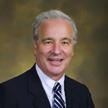[dropcap3]W[/dropcap3]hen my wife and I transferred to the Philadelphia Biblical University thirty-seven years ago this fall, we came because we wanted the Bible to be the foundation of our lives and this institution was (and is) the place to study the Bible. What I did not realize upon entering is that I was required to take two years of Greek as part of my program. When we opened the Greek New Testament, I, who had been raised in the Church and had memorized Scripture, realized that this was a new world that I knew nothing about. The Greek New Testament took me back to the first century into a different world, where I could not presume to know what this or that verse of Scripture said or meant. Thus I would have to study and learn and construct translations and interpretations that were in a sense, my own.
I do not mean to say that translations of the original languages are a detriment; they are absolutely necessary, but there is something about reading God’s Word through the apostles and prophets in the original language that removes a bit of a veil or distance between God and the reader. For me, it was a freeing and life-changing experience to begin to actually translate and understand God’s Word on my own. Later, when I went to seminary I experienced the same feeling when I encountered and learned Hebrew, but even to a greater extent. I then majored in my seminary study as a New Testament major and took as many Hebrew courses as I could. In my twenty-five years of teaching experience, it has been my privilege to teach Greek to undergraduate and graduate students around the world. I can’t say that all these students experienced the New Testament like I did, but they did gain a sense of the issues involved in translation and interpretation and were able to wrestle with basic questions of what the apostles and prophets meant to say and what it means to us today.
This is the main reason why we emphasize the study of the original languages in our Master of Divinity Program here at PBU. We feel it is essential for anyone who stands up to teach or preach God’s Word to be conversant in the original languages. With the plethora of English translations, it is important that the preacher or teacher can be convinced in his own mind what Scripture says. A thorough knowledge of scripture, as well as the skills to study and teach it, is vital for those planning to enter vocational ministry. But this is just one part of the M.Div. Program here at PBU that makes it distinctive.
Pastors must also be committed to and capable of caring for people, serving them and loving them as they grow in the knowledge and grace of God. By combining serious language study with in-depth biblical and theological study and practical ministry courses, we believe that our program produces graduates who are confident to preach and teach God’s Word and to shepherd God’s people toward greater knowledge and greater grace of the Lord. An added bonus is that since PBU is non-denominational, PBU attracts students from a wide variety of churches and backgrounds which adds to the learning experience of the students. In a recent alumni survey, 92% of the graduates in the Bible Graduate Programs indicated that PBU fulfilled its mission of preparing students for ministry “Very well.” We are encouraged then that the Lord is using PBU to educate students to serve Christ in the Church, society, and the world.
[framed_box]

Herb Hirt is the Dean of the School of Bible and Ministry. He has taught at PBU since 1996. PBU has offered a Master of Divinity since 2002. Learn more about the MDiv on PBU’s website.
[/framed_box]